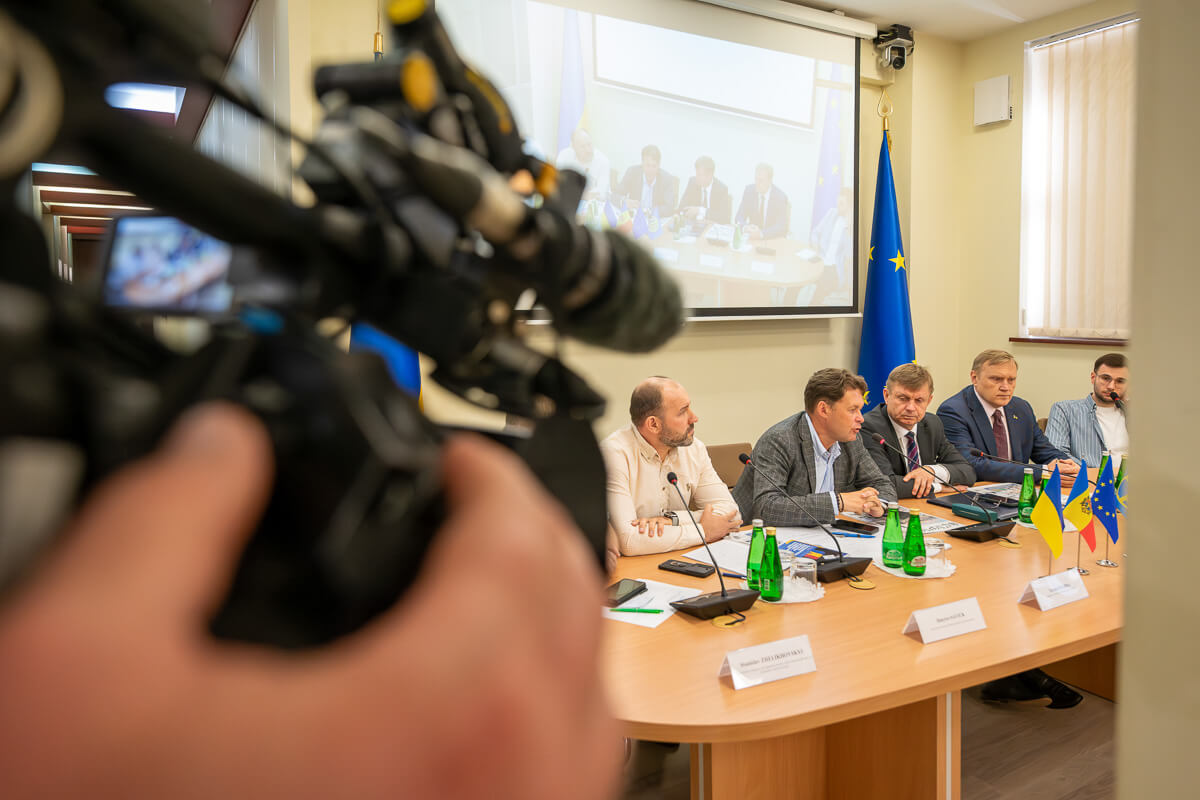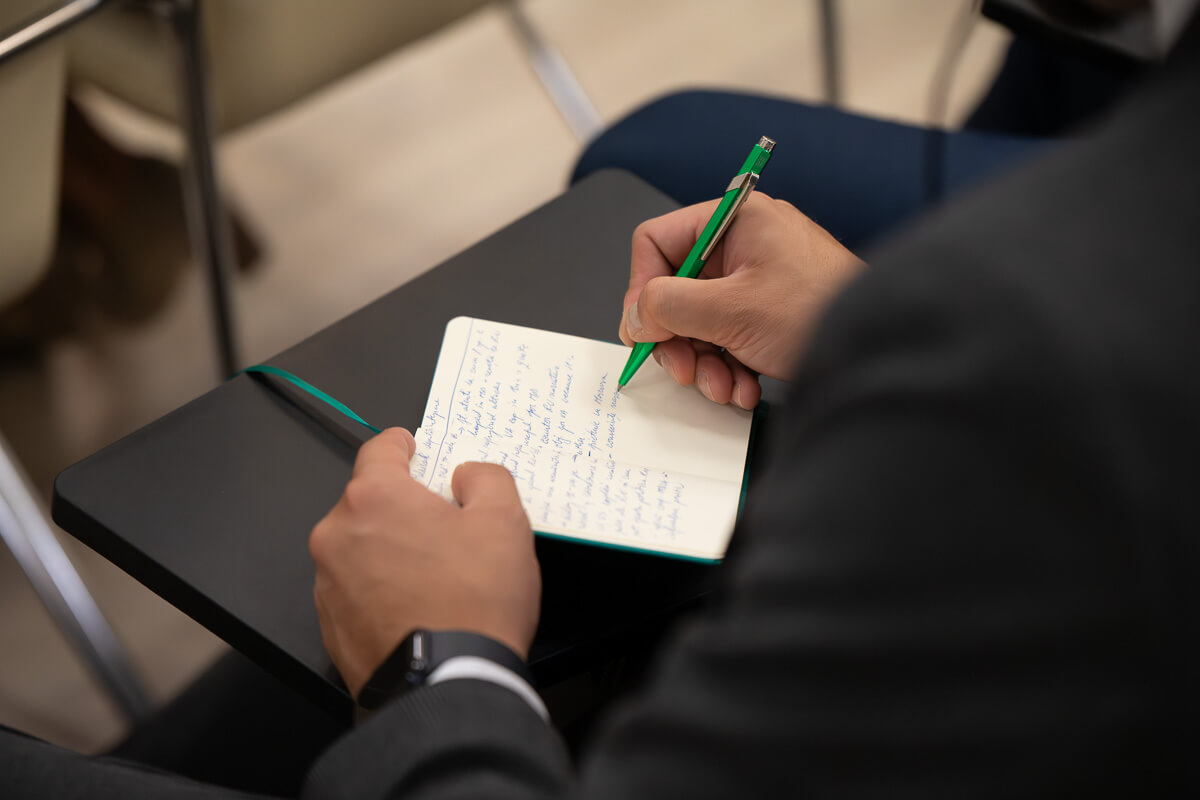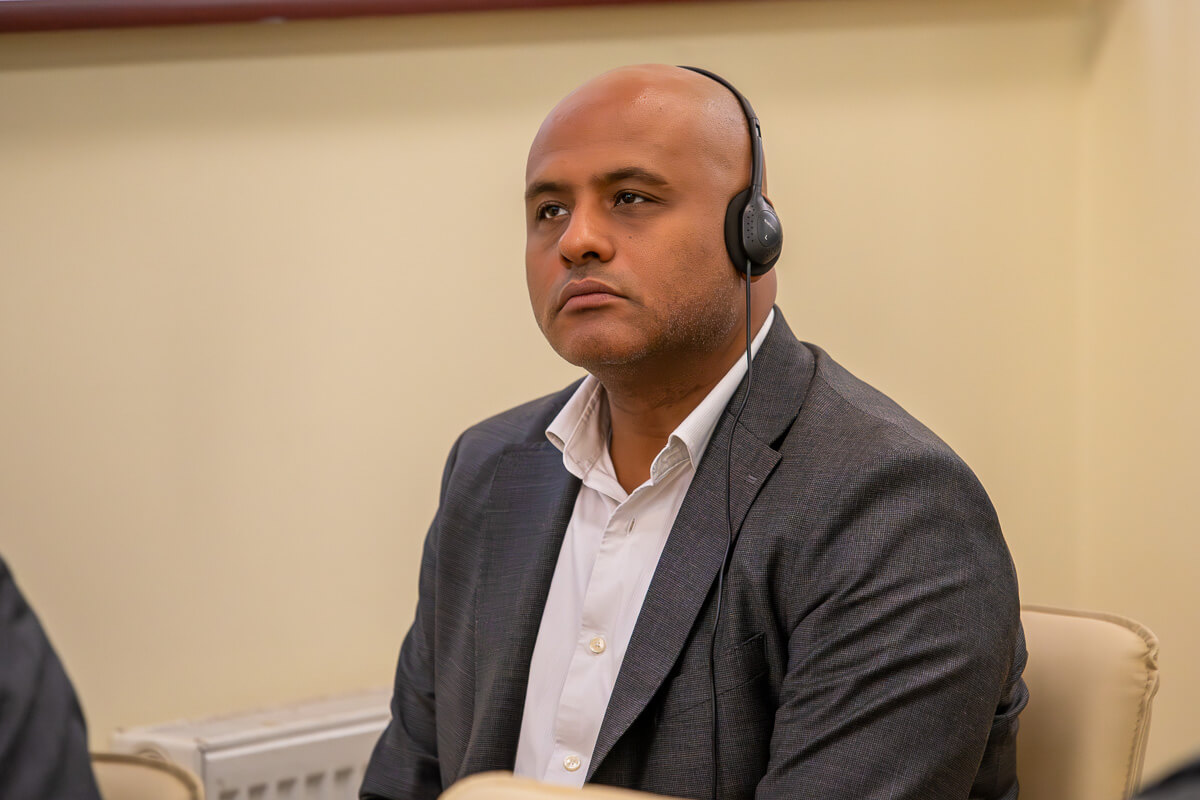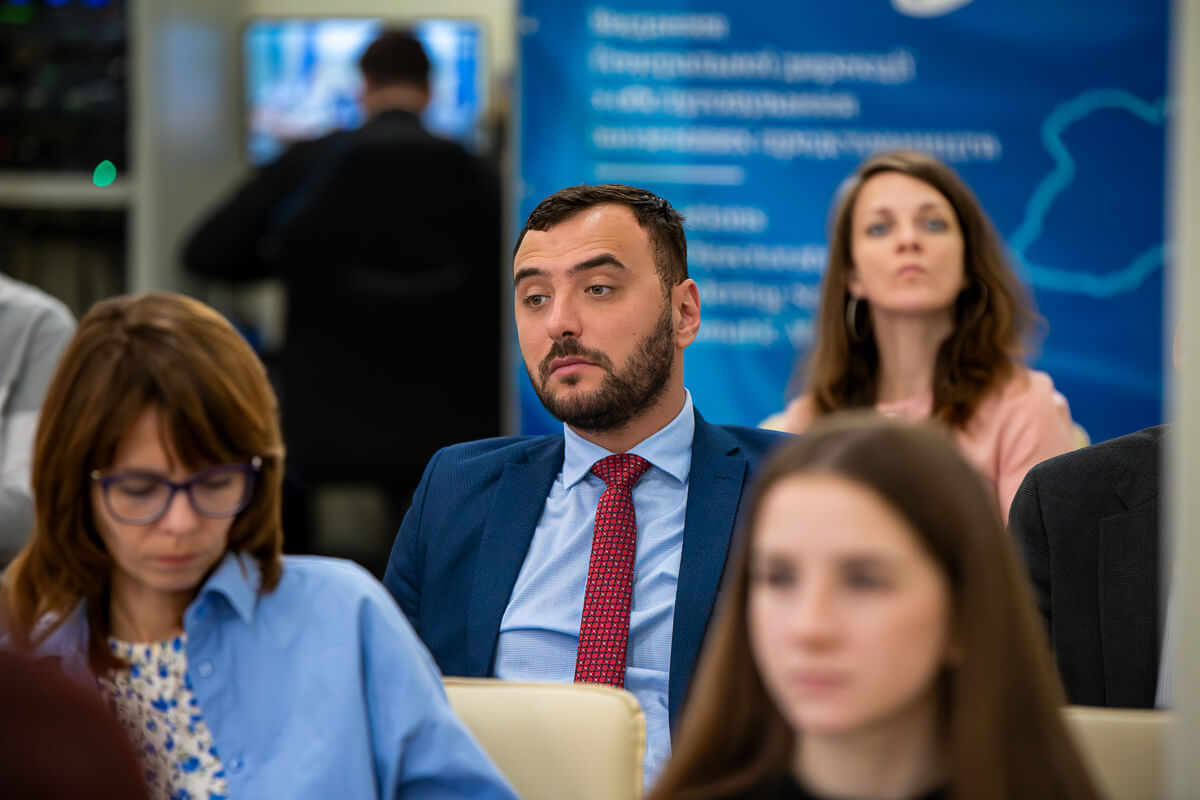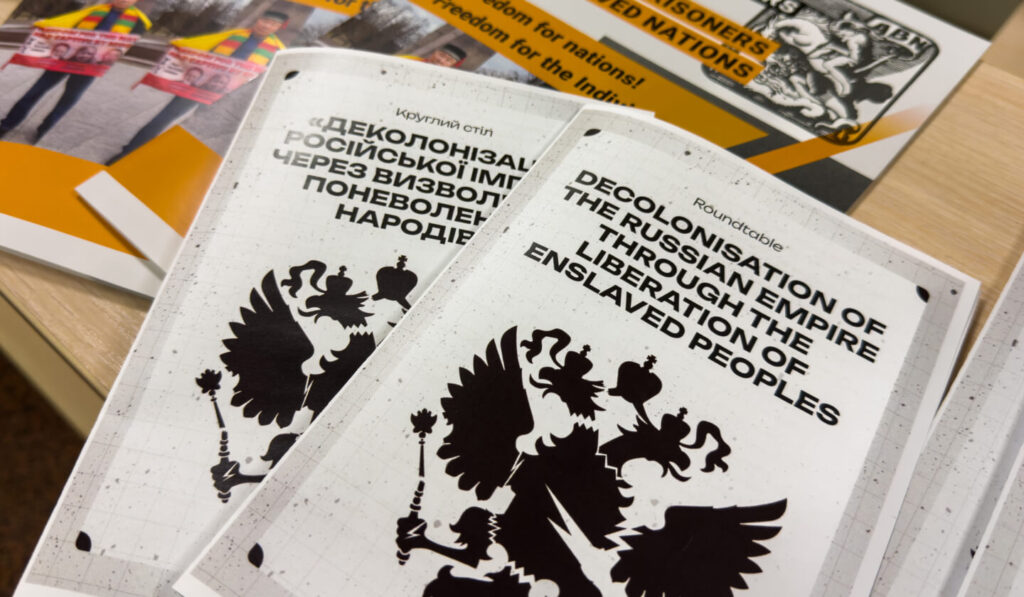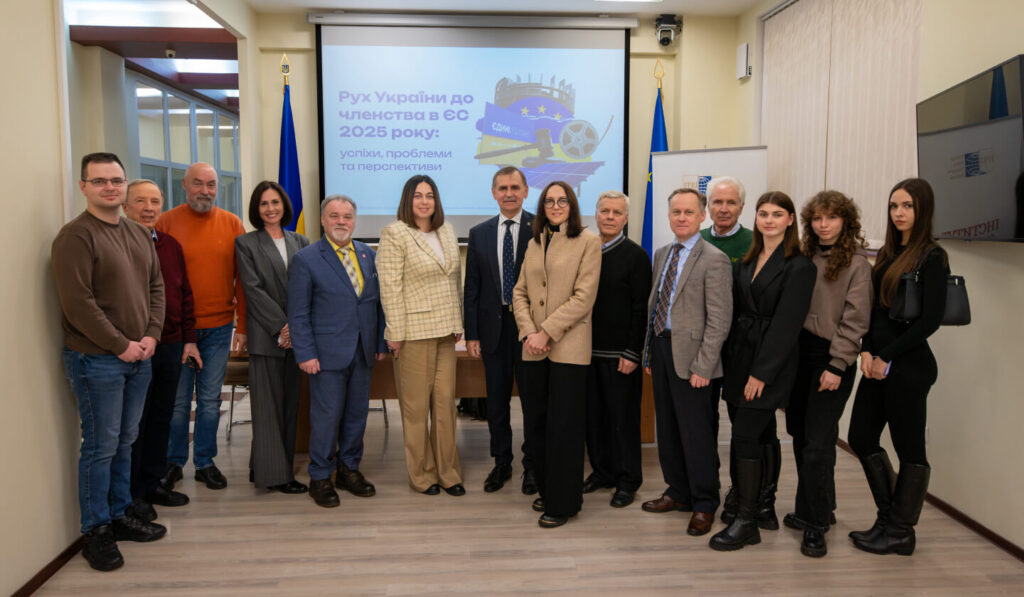On Tuesday, 16 September 2025, the Institute of World Policy, together with the non-governmental organisations Ukrainian Center of Peacebuilding and Institute of Democratization and Development, with organisational support from the State Enterprise ‘Directorate-General for Rendering Services to Diplomatic Missions’ (GDIP), held a roundtable at the Media Center Directorate of the GDIP on the theme ‘Parliamentary Elections in the Republic of Moldova — The Ukrainian Context…’.
Representatives of the foreign and domestic diplomatic corps, Ukrainian media, higher education institutions, and the expert community participated in the event.
Yevhen Mahda, director of the Institute of World Policy, moderated the event. In his opening remarks, he drew attention to the roundtable topic. He stressed the importance of the upcoming parliamentary elections in Moldova for further developing bilateral relations with Ukraine:
‘The parliamentary elections in the Republic of Moldova will likely become one of the most significant events in our region this autumn and will be especially important for Ukraine. Ukraine and Moldova share more than 1,200 kilometres of common border, and both countries are currently candidates for accession to the European Union. Equally relevant is the interest of aggressive russia and its attempts to influence the political process in the Republic of Moldova. Today we have gathered leading experts who will present their views on this subject to the public.’
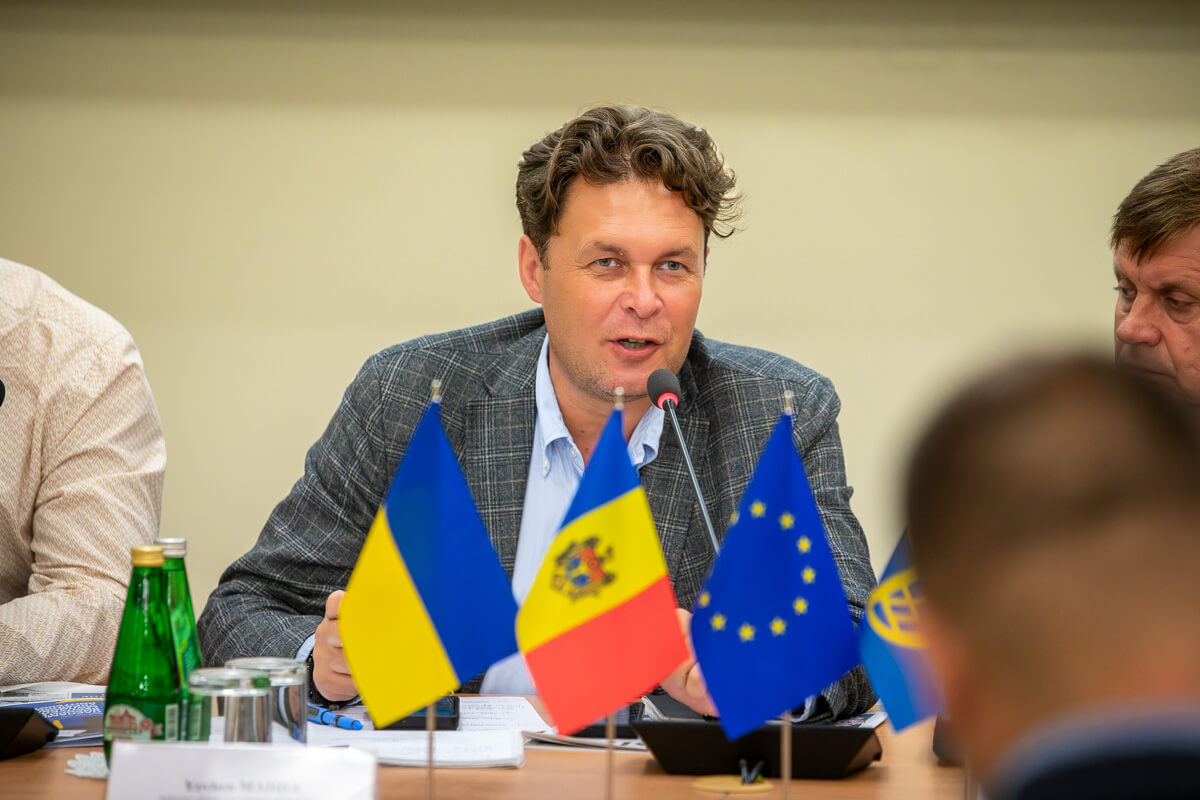
Among the speakers of the roundtable were Valeriu Chiveri, Ambassador Extraordinary and Plenipotentiary of Moldova to Ukraine; Marko Shevchenko, Ambassador-at-Large of the Ministry of Foreign Affairs of Ukraine, representative in the Transnistrian settlement process; Vadym Halaichuk, member of Parliament of Ukraine, first deputy chair of the Verkhovna Rada Committee on Ukraine’s Integration into the European Union; Arsenii Pushkarenko, Deputy Chair of the Committee on Foreign Policy and Interparliamentary Cooperation of the Verkhovna Rada of Ukraine; Marianna Prysiazhniuk, political analyst at the Ilko Kucheriv Democratic Initiatives Foundation; Mihai Isac, editor-in-chief of the Karadeniz press, journalist of the TVR Moldova; Dmytro Saviuk, head of the Institute of Democratization and Development; Dmytro Lekartsev, head of the National Congress of Ukrainians of Moldova; Artur Kharytonov, president of the Liberal Democratic League of Ukraine NGO; Stanislav Zhelikhovskyi, PhD in Political Science, corresponding member of the Ukrainian Academy of Geopolitics and Geostrategy.

In his remarks, Ambassador Valeriu Chiveri stated:
‘Regrettably, when summing up the results of last autumn’s elections, the national institutions and civil society in Moldova realised and demonstrated that russia interfered in the electoral process on an unprecedented scale. Like a virus, it spread everywhere, seeking weak spots. It used money primarily to stage protests and to bribe voters directly. According to official data, the national police discovered that right before the elections, one russian bank opened more than 138,000 accounts in the names of Moldovan citizens last year. On a single day, the border service confiscated more than one million euros in cash, smuggled through Chişinău airport to finance illegal campaigns against the government. […] In 2025, these attempts have grown even larger: estimates suggest that russia allocated at least 100 million euros for influence operations in our country.’
The Ambassador emphasised that the upcoming parliamentary elections in Moldova will take place under unprecedented external pressure. He described the methods of russian influence: massive financial inflows, the use of cryptocurrencies and Telegram-based payments for bribery, and the spread of disinformation through bot networks and artificial intelligence. He warned of the social harm caused by such influence in the ‘post-truth era’, when any piece of information can undermine the ability of people to form clear positions. He added:
‘A stable Moldova will support Ukraine even more strongly than we do today.’
He also drew attention to the Ukrainian community in Moldova, which comprises around 6.5% of the population and can play an important role in the country’s future.
Ambassador-at-Large Marko Shevchenko stressed that Ukraine needs a friendly state on its western border. This matters not only for Ukraine’s European integration but also for developing economic cooperation and transport and logistics routes. It also affects the fate of many Ukrainians who had to seek refuge in Moldova because of russian aggression. At the same time, political tensions persist in Moldova: a significant part of the local political forces continues to favour restoring partnership with russia. He stated:
‘Ukraine wants Moldova to remain our friend, and we want our joint path towards European integration to remain unchanged. […] These elections will determine whether Ukraine continues to partner with Moldova, or whether we must consider ways to safeguard our national security if forces come to power in Moldova that prefer friendship with the Russian Federation.’
The participants discussed the current situation in view of the russian leadership’s attempts to interfere in the parliamentary elections in the Republic of Moldova, scheduled for 28 September 2025, in violation of international law. They examined Moldova’s experience of countering russian propaganda and information threats during elections, exposed manipulations targeting the Moldovan diaspora, and analysed the Kremlin’s focus on foreign-based voters, who once played a decisive role in Maia Sandu’s victory in the presidential elections.

